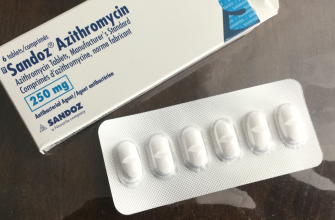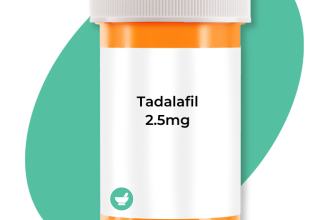To treat fungal infections, a common recommendation is to consider Diflucan (fluconazole). This antifungal medication effectively combats various fungal pathogens, including Candida species. Your healthcare provider may prescribe Diflucan for conditions such as oropharyngeal candidiasis, esophageal candidiasis, and even certain urinary tract infections.
Dosage typically varies depending on the specific condition being treated and the patient’s health status. For adults, the usual starting dose can range from 150 mg for a single dose for vaginal yeast infections to 400 mg daily for more severe systemic infections. It’s essential to follow your healthcare provider’s instructions closely to ensure optimal results.
If you experience any side effects like nausea, headache, or abdominal pain, do not hesitate to consult your healthcare provider. They can help determine whether any adjustments to your treatment are necessary. Monitoring your response to the medication is important, especially if you have underlying health conditions or are taking other medications that could interact with Diflucan.
Always ensure that you complete the prescribed course, even if symptoms improve before finishing the medication. This step is crucial in preventing the recurrence of the infection and resisting antifungal treatments in the future.
- Prescription for Diflucan
- Conditions Treated with Diflucan
- Administration and Precautions
- Understanding the Composition of Diflucan
- Inactive Ingredients
- Formulation Strengths
- Indications and Uses of Diflucan in Treatment
- Other Uses of Diflucan
- Proper Dosage Guidelines for Diflucan
- Dosage for Specific Conditions
- Adjustments and Precautions
- Potential Side Effects and Risks Associated with Diflucan
- Drug Interactions: What to Avoid with Diflucan
- Consultation and Follow-Up: Ensuring Safe Use of Diflucan
Prescription for Diflucan
Doctors typically prescribe Diflucan (fluconazole) to treat fungal infections. The dosage commonly starts at 150 mg for a single dose, particularly for vaginal yeast infections. Depending on the infection’s severity, a doctor may recommend follow-up doses or higher amounts, up to 400 mg per day for more extensive infections.
Conditions Treated with Diflucan
Diflucan is effective against several types of fungal infections. It treats candidiasis, cryptococcal meningitis, and is prescribed for those with weakened immune systems. Always consult a healthcare provider to determine the appropriate treatment for your specific condition.
Administration and Precautions
Administer Diflucan orally, with or without food. Maintaining hydration is important during treatment. Be aware of potential side effects, such as nausea or headache. Inform your doctor about any other medications you are taking to prevent interactions. Regular follow-ups can help assess treatment effectiveness.
Understanding the Composition of Diflucan
Diflucan contains fluconazole as its active ingredient, which belongs to the azole class of antifungal medications. Fluconazole works by inhibiting fungal cell membrane synthesis, effectively stopping the growth of fungi and helping the immune system eliminate the infection. This mechanism allows it to target various fungal pathogens like Candida species and Cryptococcus neoformans.
Inactive Ingredients
In addition to fluconazole, Diflucan includes various inactive ingredients that play essential roles in the formulation. These may include:
- Corn starch: Acts as a binder and helps in the stability of the tablet.
- Gelatin: Used to create the capsule shell for easy swallowing.
- Lactose: Often included as a filler to ensure proper tablet size.
- Coloring agents: Added for aesthetic purposes, but do not affect the medication’s effectiveness.
Formulation Strengths
Diflucan is available in various strengths, such as 50 mg, 100 mg, 150 mg, and 200 mg. The dosage prescribed depends on the specific condition being treated. For example, a single 150 mg dose is common for treating vaginal yeast infections, while more severe infections may require higher doses over a longer period.
Consult with a healthcare professional for personalized advice and to ensure the appropriate dosage based on individual health needs. Understanding the components and formulations of Diflucan can significantly contribute to the successful management of fungal infections.
Indications and Uses of Diflucan in Treatment
Diflucan, or fluconazole, primarily treats fungal infections. It effectively combats candidiasis, a common yeast infection affecting various body parts, including the mouth and genital area. For oral thrush, healthcare providers often prescribe Diflucan to alleviate symptoms and eliminate the underlying fungal presence.
This medication is also indicated for systemic infections like cryptococcal meningitis, especially in immunocompromised patients. Individuals with HIV or experiencing chemotherapy may require Diflucan to prevent or treat such infections. It plays a significant role in managing fungal infections in patients at risk.
Other Uses of Diflucan
Diflucan is also employed in the treatment of various other fungal conditions, including skin infections like tinea and onychomycosis, which affects the nails. In cases of severe fungal infections that do not respond to topical treatments, Diflucan may be a more suitable option due to its systemic action.
In some instances, healthcare providers recommend Diflucan as a preventative measure against fungal infections in high-risk patients undergoing surgery or organ transplantation. Its broad-spectrum antifungal properties make it an effective choice in diverse medical scenarios.
Proper Dosage Guidelines for Diflucan
For treating fungal infections, the typical adult dosage of Diflucan (fluconazole) is 150 mg as a single dose for vaginal candidiasis. For more severe infections, such as systemic candidiasis, the dose may range from 400 mg on the first day to 200 mg daily thereafter, depending on the specific case and physician’s recommendation.
Dosage for Specific Conditions
- Oropharyngeal candidiasis: 200 mg on day one, followed by 100 mg daily for at least 2 weeks.
- Esophageal candidiasis: 200 mg on day one, then 100 mg to 400 mg daily, based on severity.
- Cryptococcal meningitis: 400 mg once daily, potentially continuing for several weeks depending on response.
Adjustments and Precautions
Monitor dosage for patients with renal impairment. Creatinine clearance below 50 mL/min may require dose adjustment. Always consult with a healthcare provider for individualized recommendations.
If side effects occur, such as abdominal pain, nausea, or skin rash, contact a healthcare professional promptly. Follow the prescribed regimen closely for optimal outcomes.
Potential Side Effects and Risks Associated with Diflucan
Patients should remain vigilant for several potential side effects when taking Diflucan (fluconazole). Commonly reported reactions include headaches, nausea, and abdominal pain. These symptoms may diminish as your body adjusts to the medication.
Allergic reactions, though rare, can also occur. Symptoms may manifest as skin rashes, itching, or swelling. If you notice any of these signs, seek medical attention immediately.
Diflucan can impact liver function. Regular monitoring of liver enzymes is advisable, especially for individuals with pre-existing liver conditions. Signs of liver issues include persistent fatigue, unusual bruising or bleeding, and yellowing of the skin or eyes.
This medication may interact with other drugs, amplifying side effects or reducing effectiveness. It’s essential to share your full medication list with your healthcare provider.
In specific populations, such as pregnant individuals, careful consideration is necessary. Discuss any potential risks and benefits with your physician to ensure a safe treatment plan.
While the majority of users tolerate Diflucan well, remaining aware and proactive regarding side effects enhances safety and treatment efficacy.
Drug Interactions: What to Avoid with Diflucan
Avoid using Diflucan with certain medications to prevent serious interactions. Specifically, steer clear of long-term use of atorvastatin and simvastatin, as Diflucan can increase their levels in the blood, raising the risk of side effects.
Be cautious with anticoagulants like warfarin. Diflucan may enhance its effects, leading to an increased risk of bleeding. Routine monitoring of blood clotting parameters is advisable if these drugs are prescribed together.
Medications that affect liver enzymes, such as rifampicin and phenytoin, can alter the metabolism of Diflucan. This may either reduce the effectiveness of the antifungal or increase the likelihood of side effects. Discuss alternative treatments with your healthcare provider if you are taking these medications.
Anticonvulsants like carbamazepine may significantly lower Diflucan levels, compromising its antifungal effects. Monitor your treatment response closely if these drugs are used concurrently.
Other drugs that may interact include certain benzodiazepines, which can have increased sedative effects when taken with Diflucan. Always consult your healthcare provider before starting or stopping any medication to ensure safety and efficacy.
Consultation and Follow-Up: Ensuring Safe Use of Diflucan
Start with a detailed consultation with your healthcare provider to determine the appropriateness of Diflucan for your condition. Provide your doctor with a complete medical history, including any current medications, allergies, and underlying health issues.
The dosage of Diflucan varies based on the type of infection and individual patient factors. Follow your doctor’s prescription precisely to achieve optimal results. Do not alter the dosage or stop taking the medication without consulting your healthcare provider.
Scheduled follow-ups are essential to monitor your progress and side effects. Typically, a follow-up appointment should occur within a week of starting treatment to evaluate the response and make necessary adjustments.
Ask your doctor about potential interactions with other medications you may be taking. Certain drugs can affect the metabolism of Diflucan, leading to increased side effects or decreased efficacy.
Pay attention to any unusual symptoms during treatment, such as skin rashes, unusual bleeding, or gastrointestinal issues. Report these to your healthcare provider immediately to ensure proper management.
Maintain communication with your healthcare provider throughout the treatment process. They may perform additional tests, especially if your infection is persistent or if you have repeated episodes.
| Action | Recommended Frequency |
|---|---|
| Initial Consultation | Before starting Diflucan |
| Follow-Up Appointment | 1 week after starting treatment |
| Regular Check-ins | As needed, based on symptoms |
By adhering to these guidelines and maintaining an open line of communication with your healthcare provider, you will help ensure the safe use of Diflucan and effectively manage your health condition.










